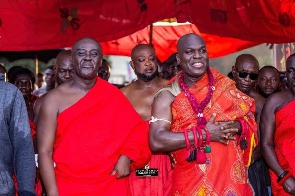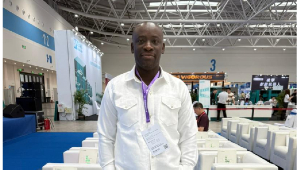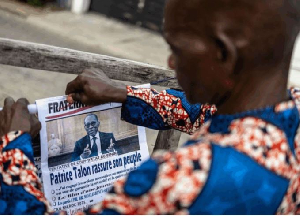Ghana has fascinating stories on how communities and traditional areas are formed. And these are usually are from situations where people who were once living together, separate to form new communities on their own.
One of such interesting stories is about the Dormaa and Akwamu traditional stools.
The traditional stools of the Dormaa Traditional area and the Akwamu traditional area have been historically proven to be twins. This is because the first chiefs of these two traditional areas were biological twins but were separate as a result of succession dispute.
Detailing how this came to be, in an interview with GhanaWeb, the Akwamuhene Kyeame (Dɔyere), Nana Osei Bonsu Hyeaman, said the journey of the Akwamus and Dormaa people began with a migration from Ethiopia till their present respective locations.
“History has it that the Akwamus and the Dormaas are one people who came all the way from Ethiopia through Southern Sudan, then through the (sic) mountains and Ivory coast until they got to Ghana in the 1500s. The first place they settled was in Twifo Hemang, where they carved their first stool.
“In 1600, a war broke out between the people of Akwamu and Dormaa even though there was nothing like Akwamu and Dormaa at the time, it was just Akwamu. During that time, there was a great chief of Akwamu by the name Ansah Sasraku. Before his demise, he told the then queen mother of his twin nephews. He told her that the younger of the twins should succeed him. He also told the Adontenhene and some other chiefs that when he dies, the eldest of the twins should be made to succeed him,” he stated.
He continued to explain by stating that: “Eventually, he died and there was a chieftaincy dispute among the twins as to who should be made the next chief. Anytime chieftaincy disputes arise like that, it creates tension among the people. So, there were two factions. One of the factions supported the queen mother and the younger twin, and some of the sub chief and the other faction supported the older twin.
"The queen mother, being a very wise woman, on realising that if nothing is done, she might lose her kingdom, she, together with the younger brother and some chiefs who supported him, broke away and went to present day Dormaa,” he explained.
The name ‘Dormaa’, he also explained, is said to have originated from their response to inquiries about their relationship with the Akwamus.
“History has it that anyone who met them questioned them about their relationship with the Akwamus. Anytime they narrated what happened to them, they got the response that ‘mo dor mu maa' which means [you love your nation]. It is the sentence that has been corrupted to what we now know as Dormaa,” he added.
In a recent symbolic reunion, the Akwamuhene, Odeneho Kwafo Akoto III; and his younger twin brother, Oseadeeyo Agyemang Badu, the Dormaahene, met during the final funeral rites of Daasebre Akuamoah Boateng II, the late Kwahumanhene who reigned from 1971 to 2013.
Ghana’s leading digital news platform, GhanaWeb, in conjunction with the Korle-Bu Teaching Hospital, is embarking on an aggressive campaign which is geared towards ensuring that parliament passes comprehensive legislation to guide organ harvesting, organ donation, and organ transplantation in the country.
Click here to follow the GhanaWeb General News WhatsApp channel
NW/AE
You can also watch the latest episode of Everyday People on GhanaWeb TV below:
General News of Saturday, 16 December 2023
Source: www.ghanaweb.com













